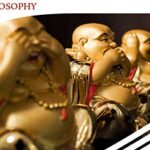Medical Research
Manual and Laser Acupuncture Help HRV in Burnout Patients
Kristen Sparrow • December 20, 2013


In this study, the Litscher group looked at HRV according to their usual protocol of before during and after acupuncture, but added a measure that looks at HRV at the beginning of the treatment series and then then at the end of the series. Both manual acupuncture and noninvasive laser helped HRV readings in patients with burnout syndrome.
Full article here.
Link to abstract here.
Improvement of the Dynamic Responses of Heart Rate Variability Patterns after Needle and Laser Acupuncture Treatment in Patients with Burnout Syndrome: A Transcontinental Comparative Study.Litscher G, Liu CZ, Wang L, Stronach Research Unit for Complementary and Integrative Laser Medicine, Research Unit of Biomedical Engineering in Anesthesia and Intensive Care Medicine and TCM Research Center Graz, Medical University of Graz, Auenbruggerplatz 29, 8036 Graz, Austria ; Acupuncture and Moxibustion Center, Beijing Hospital of Traditional Chinese Medicine Affiliated to Capital Medical University, No. 23 Meishuguanhou Street, Beijing 100010, China.
Abstract
We investigated manual needle and laser needle acupuncture as a complementary therapy for patients with burnout syndrome. Twenty patients with a mean age ± SD of 38.7 ± 8.4 years were assigned to two groups, each consisting of ten patients. One group was treated with manual needle acupuncture and the other with laser needle acupuncture. Heart rate, heart rate variability (HRV), and a new score called dynamic acupuncture treatment score (DATS) served as evaluation parameters. The study documented significant effects on heart rate after needle acupuncture treatment and significant effects on HRV caused by both needle and laser needle acupuncture. Based on new neurovegetative acupuncture treatment evaluation scores, it can be stated that both noninvasive laser needle acupuncture and manual needle acupuncture have the potential to be a powerful approach for evidence-based complementary treatment of patients with burnout syndrome. Further transcontinental studies to verify or refute the preliminary findings are in progress.

